Description
ABSTRACT
The Enforcement of Foreign Jurisdiction Clauses of Contracts in Nigeria
Uche Val Obi SAN*, Izuchukwu Gideon Okpara**, and Moyinoluwa Adegoroye***
The inclusion of foreign jurisdiction clauses in contracts has become a common trend in international commercial transactions. Since most parties are often not familiar with the laws of their foreign counterparts and are sceptical about getting a fair trial in the latter’s jurisdiction when a dispute arises from the contract, the option of a usually neutral foreign jurisdiction clause, therefore, is cardinal when considering the risks associated with contractual relationships. In this article, the Authors consider, inter alia, the meaning and nature of contracts, foreign jurisdiction clause as a term of a contract, its enforcement in both England and Nigeria, with a particular focus on the attitude of Nigerian Courts to the enforcement of foreign jurisdiction clause as a term of a contract. The Authors opine that while the Supreme Court has consistently upheld and enforced foreign jurisdiction clauses, the lower courts have often refused to do so because they perceive those clauses to be ouster clauses. The Authors recommend enacting legislation and practice direction to uphold parties’ freedom of contract, including parties’ rights to subject their disputes to the laws and country of their choice. This will no doubt result in a more predictable outcome of international commercial contracts litigations and related issues in Nigeria, engender trust in our judicial system, promote party autonomy, strengthen the parties’ existing rights, promote access to justice, and strengthen our legal system.
Keywords: Contract, Foreign Jurisdiction, Ouster Clauses, Nigeria.
MEANING AND NATURE OF CONTRACT
The term ‘Contract’ is defined1 as an agreement between two or more parties about their relative rights and obligations enforceable under the law. It is a legally binding agreement between two or more persons through which the rights and duties vested on one party are in exchange for some act or forbearances on the other.2 It can be oral or written. For a contract to be enforceable, there must be a clear-cut offer, an unqualified acceptance,3 a legal consideration, and an intent to create legal relations. Parties must also have mutuality of purpose and intention, that is, consensus ad idem. To ascertain the parties’ intention, the contract’s terms, the parties’ conduct, and the case’s circumstances are considered.
* FCARB, Managing Partner, Alliance Law Firm.
** Associate, Alliance Law Firm.
*** Associate, Alliance Law Firm.
- Owoo & Ors v Edet[2011] LPELR-4812(CA).
- Peace Capital Market Limited v UJAM [2021] LPELR-54954(CA).
- There should be no variation or condition to the professed acceptance otherwise it will become a
counter-offer.

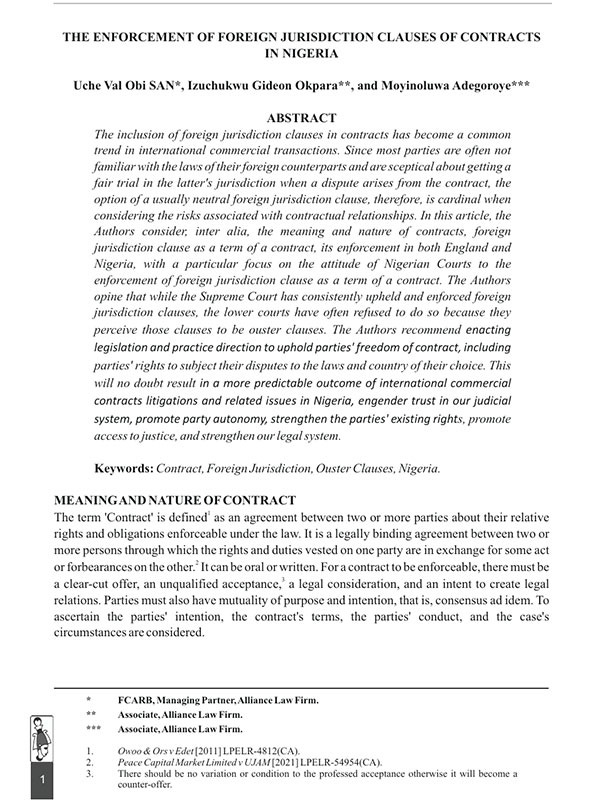
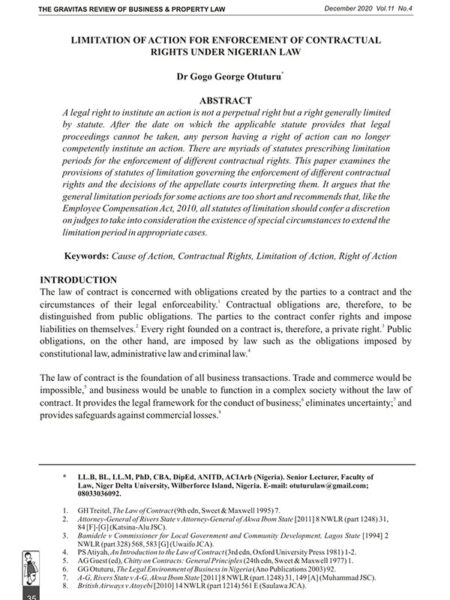
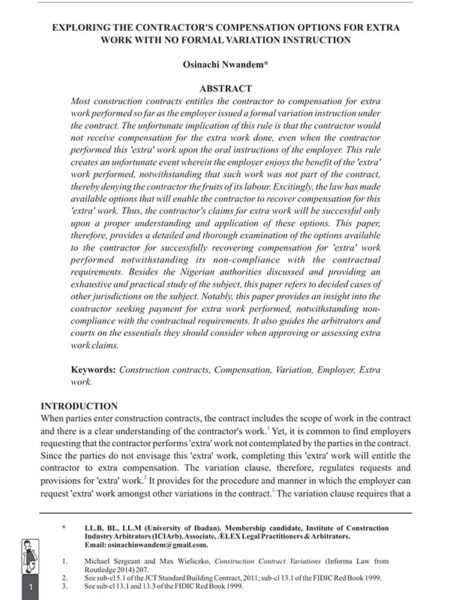
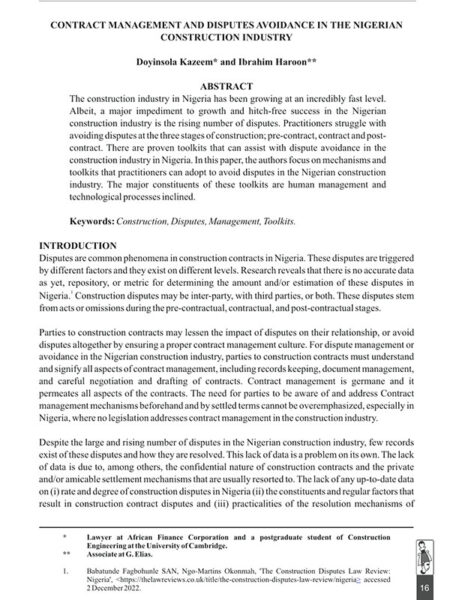
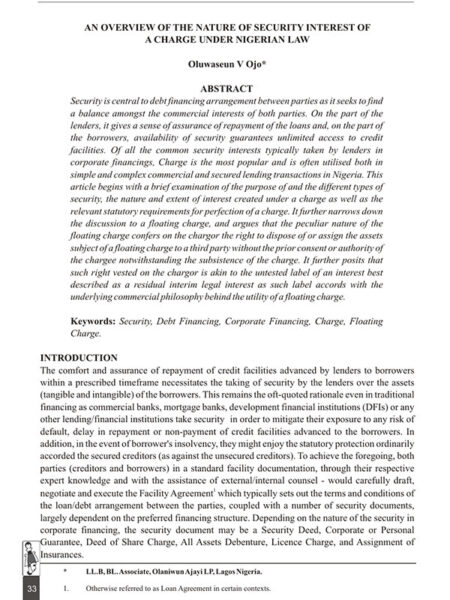


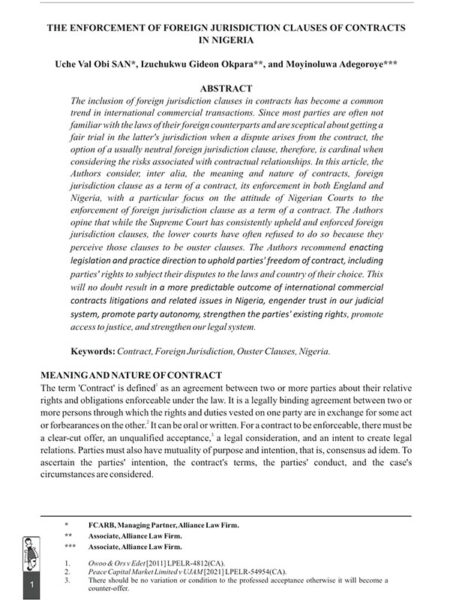
Reviews
There are no reviews yet.